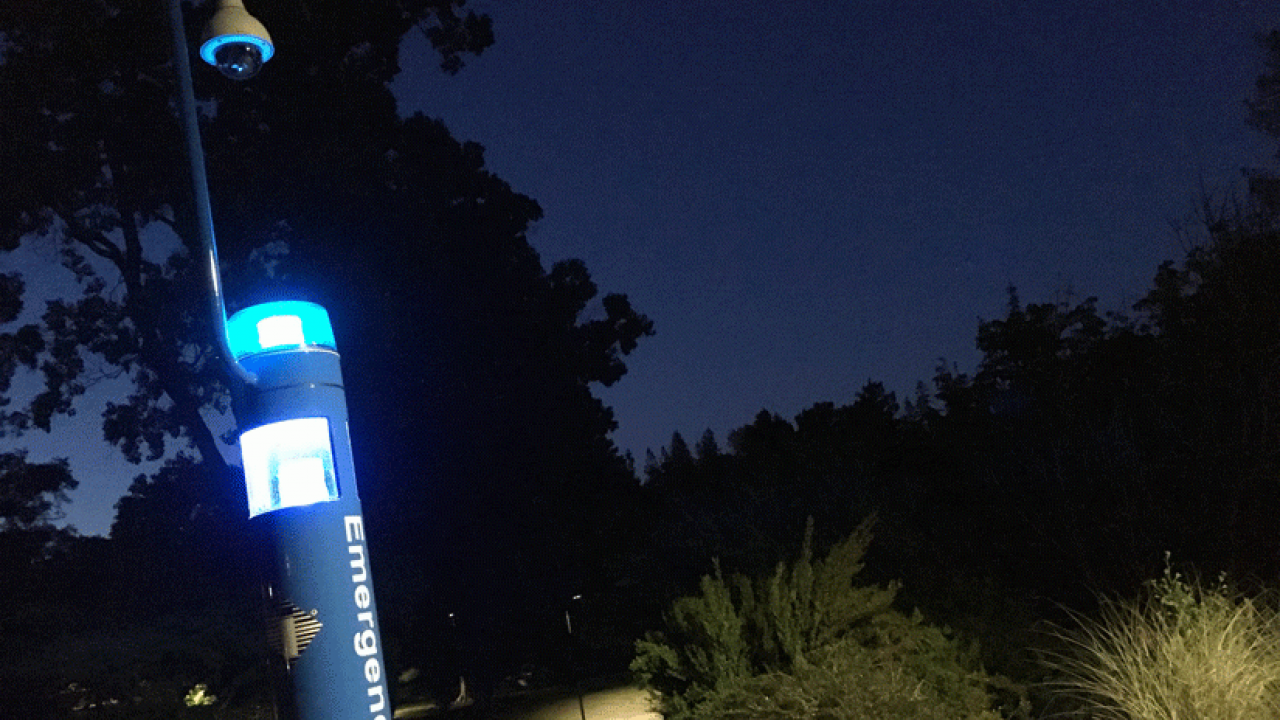UC Davis released its Annual Security and Fire Safety Report late last week, with an email to all employees and students. The report, required by the federal Jeanne Clery Disclosure of Campus Security Policy and Campus Crime Statistics Act (commonly known as the Clery Act), includes information about campus safety programs as well as a summary of certain categories of crimes reported on and around UC Davis property in calendar year 2015.
Community Resources
• CARE, the Center for Advocacy, Resources and Education: Advocacy Office for Sexual and Gender-Based Violence and Sexual Misconduct — Confidential service for students, faculty and staff who have experienced any form of sexual violence or sexual harassment. The center has three full-time staff members and provides emergency response 24 hours a day, seven days a week. In collaboration with other campus units, the center also develops and delivers awareness, educational and training programs on preventing and responding to sexual violence. Phone: (530) 752-3299.
• Sexual Violence Prevention and Response — Learn about sexual assault, domestic and dating violence, and stalking; resources for victims; how to help a friend; resources available to you if you have been accused; sexual violence prevention, education and training; how to report; and how the university investigates cases involving students or employees.
• UC Davis Police Department — Campus police offer tips on personal safety (click on the “Parent/Guardian Corner” tab in the menu bar at the top of the Police Department’s main webpage). Emergency phone: 911. Other inquiries: Davis campus, 530-754-COPS (2677); Sacramento campus, 916-734-2555.
UC Davis is committed to protecting the safety and security of all students, staff, faculty and visitors to our campus. Safety initiatives in the past year included continued expansion of the campus Police Department’s SafeRides program (now the largest such program on any U.S. campus) and installation of “blue light” safety telephones on campus, especially in the arboretum.
The University of California has implemented a series of measures to prevent and respond to sexual violence on UC campuses, including mandatory education for all incoming students, and standardized investigation and adjudication processes. At UC Davis, the Center for Advocacy, Resources and Education, or CARE, provides confidential crisis intervention, support and advocacy to survivors of sexual violence and sexual harassment. More information and resources for preventing and responding to sexual violence is available online.
Crime statistics
The annual report tallies crimes specified by federal regulation, reported to have occurred on or adjacent to UC Davis property, as well as at properties owned or controlled by the university, including the Davis campus and the UC Davis Health System in Sacramento. The summary also includes reports taken by police agencies with jurisdiction adjacent to university property. The full report is available online.
The report includes both crimes reported to police, and those reported through university employees who, under the Clery Act, are defined as “campus security authorities.” These can include deans, athletic coaches, faculty advisors for student clubs, resident assistants and student advisors. UC Davis surveyed more than 900 campus security authorities to compile numbers for the 2015 Clery report.
The number of reports can be driven by both the actual number of incidents, and the willingness of victims to report them either to police or others. Many crimes, especially sexual assault, are believed to be underreported.
CARE provides data on disclosures of sexual violence, but only with permission of the victims and without disclosing personally identifying information.
Specific crimes
UC Davis received reports of 28 cases of rape (including attempted rape), 20 cases of fondling and one report of statutory rape in 2015.
The university’s 2015 Clery statistics also include 15 cases of domestic violence, five cases of dating violence and 22 cases of stalking.
In 2015, the university received reports on 54 burglaries, 22 cases of aggravated assault, four robberies and nine auto thefts. The Clery report specifically does not include cases of simple theft, such as bicycles stolen while left outside buildings or backpacks stolen while left briefly unattended.
The campus received nine reports classified as hate crimes: four cases of vandalism, two assault cases and three cases of intimidation.
The Clery statistics also include 38 arrests (or citations) for drugs, 62 for liquor offenses and eight for weapons offenses.
